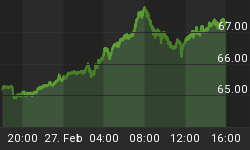Drug makers recently announced an $80 billion concession for President Obama's health plan. In all likelihood, when people first think about lower profits for drug companies they will view the initiative positively with the belief that lower prices for consumers should benefit society. However, in the long run the government's growing influence over another segment of the private sector will prove devastating for the drug companies by stifling future drug discovery. Obviously, less innovation will eventually result in negative consequences such as reducing affordability of new drugs and preventing future treatment options for diseases of today and of tomorrow.
The drug companies have agreed to concessions to win positive publicity and to potentially keep the government from meddling any further. However, this initial agreement only ensures more interference ahead. When the drug companies agree to lower prices and profits under the guise of benefiting the greater good, it confirms for Obama and the government that lower profits help society. Yet, if it is in the public's best interest for these companies to make $80 billion less, then eventually it will be argued that society will benefit even more if the drug industry's earnings continue to get cut until they earn no profits at all. Ultimately, if the government has its way, innovation will be impacted by lower profitability and society inevitably will lose far more than it has gained in the short term.
In socialism, an economy suffers because government intervention leads to business closures, resulting in lower supplies of goods and services at much higher costs. As government interference gains greater momentum the economy worsens and people suffer. It is the increase in suffering that gives government the go-ahead to step-up its attack against the private sector to once again "benefit the greater good" even though society is the greatest loser.
The events that have and will continue to hurt the drug industry mirror the events that have occurred in the mortgage industry during the last decade. Within the last ten years, government sponsored entities, Fannie Mae and Freddie Mac, had their mandates broadened to provide greater amounts of mortgage credit to more people - primarily those who were previously unable to obtain mortgages on their own. Prior to the government's changed agenda, the private markets provided mortgages only to those with good credit. Initially the results of the government program seemed effective as home ownership in the US soared. However, as is clear today, the result of such government intervention has been negative in a way that no one in government foresaw. In contrast to the era before the government's intervention when qualified people were able to obtain a mortgage, it is now difficult for equally qualified people to get a mortgage. Although the similarities between mortgage lending and the drug industry may not be apparent, the end result for consumers has to be the same - less product availability and higher costs.
The Constitution was written to promote private markets and competition without the hand of the government. Today, the government is ignoring the Constitution in order to centrally plan the economy. This will have disastrous effects. Consumers will have less choice in the goods and services they buy and will pay more for that privilege. The current lack of mortgage credit is just one example of the harmful effects of intervention. Likewise, the government's efforts to lower drug costs for all consumers will result in a greater number of people being unable to afford the medicines they need.
Disclaimer: The above is a matter of opinion and is not intended as investment advice. Comments within the text should not be construed as specific recommendations to buy or sell securities. Individuals should consult with their broker and personal financial advisors before engaging in any trading activities. Certain statements included herein may constitute "forward-looking statements" with the meaning of certain securities legislative measures. Such forward-looking statements involve known and unknown risks, uncertainties and other factors that may cause the actual results, performance or achievements of the above mentioned companies, and / or industry results, to be materially different from any future results, performance or achievements expressed or implied by such forward-looking statements. Any action taken as a result of reading this is solely the responsibility of the reader.















